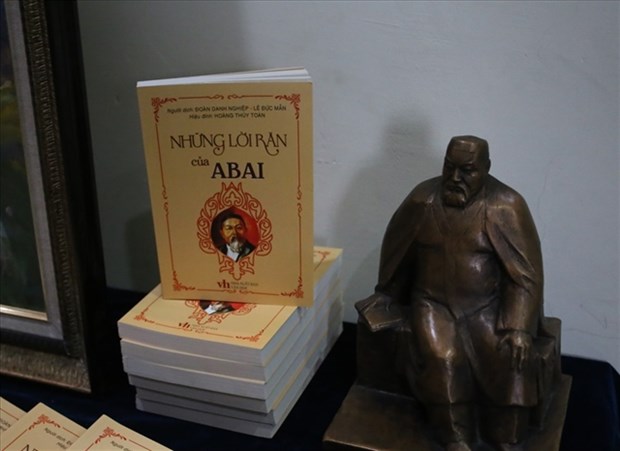Book by celerated Kazakh author translated into Vietnamese
A book featuring the philosophies of celebrated Kazakh poet, composer and philosopher Abai Kunanbaev (1845-1904) has been translated into Vietnamese.
The launching ceremony for the book, entitled “The Book of Words”, was held recently by the Embassy of Kazakhstan in Viet Nam in co-ordination with the Abai Science and Culture Centre in Viet Nam of the Hanoi National University of Education.
 |
| The Book of Words by celebrated Kazakh poet, composer and philosopher Abai Kunanbaev has been published in Viet Nam. (Photo: laodong.vn) |
It is an activity to commemorate the 175th birth anniversary of Kunanbaev, who is considered the great thinker or enlightener of the Kazakh people.
Professor Do Viet Hung, representative of the university, said the publication is an event of great significance in the co-operation between by the Embassy of Kazakhstan in Viet Nam and the university.
According to the ambassador of the Republic of Kazakhstan in Viet Nam, Yerlan Baizhanov, The Book of Words is the second Kazakh literary work published in Viet Nam. The first by another Kazakh author was released in the 1970s and also featured Kunanbaev's life and career.
The ambassador said Kunanbaev had a great influence on Kazakh history and culture, and The Book of Words is an educational work for all the people of Kazakhstan though many significant historical milestones.
Besides poems and educational works, Kunanbaev is also the author of many famous Kazakh songs which have become considered the folk songs of the country.
The Book of Words features 45 short prose philosophies by Kunanbaev, addressing the issues of education, morality, rule of law and the history of the Kazakh people.
The book has been translated into various languages, including Russian, Chinese, France, English, Korean, Turkish, Mongolian and others.
Source: VNA